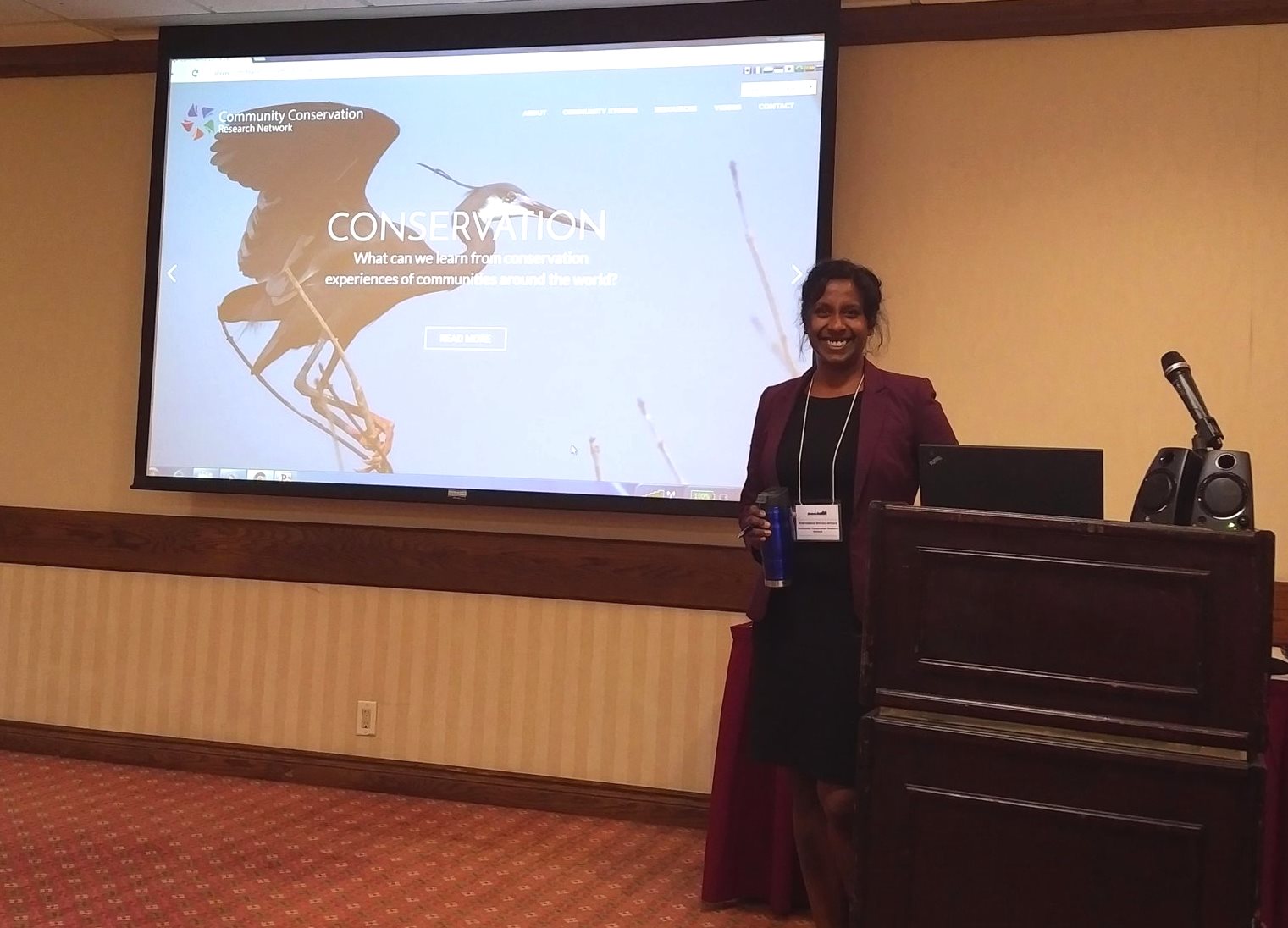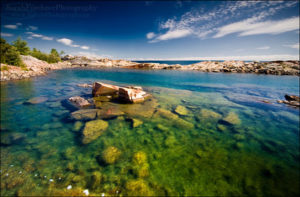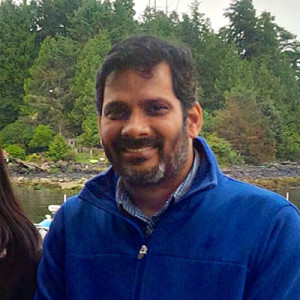
30 Jun Insights on community-based stewardship and governance to achieve sustainable livelihoods
The CCRN hosted a Special Session at the Coastal Zone Canada (CZC) Conference in Toronto on June 13th, 2016. The session was titled: “Community, Conservation and Livelihoods: Insights from the Community Conservation Research Network on community based stewardship and governance to achieve sustainable livelihoods.” CCRN researchers Cheryl Chan, Sharmalene Mendis-Millard and Prateep Nayak discussed the links between communities, conservation and livelihoods, and described best governance practices to support community conservation.
The themes explored during this special session included: increasing our resilience to natural and anthropogenic threats in order to protect coastal ecosystems and the breadth of goods and services these provide to society; exploring and enhancing the fundamental links between local communities, conservation efforts and sustainable livelihoods to address the environmental and economic challenges facing the world’s coasts; and, as the scope of these problems transcends geopolitical boundaries, governments, businesses and universities around the world are increasingly engaging with coastal communities to meet these challenges.

Great Lakes. Coastal Zone Canada Association.
Over the past 20 years the biennial CZC conferences have brought together experts and interested individuals from across Canada and worldwide, to share ideas and lessons learned about the unprecedented use as well as feeling impacts from climate change that our coastal zones are facing. Through such meetings the CZC helps to promote better understanding and response to the challenges facing our coastal resources and communities.
Abstracts from the conference and contact information for the researchers is listed below.
Analysis of the changing linkages between ecosystem services and social wellbeing in the context of MPA implementation in Bluefields, Jamaica
Cheryl Chan, University of Waterloo, Canada (cherylchan@gmail.com)

Cheryl Chan is currently a master’s student in the Environmental Science department at the University of Waterloo
Coastal communities are facing numerous challenges from large-scale global change (e.g., sea level rise, increase in sea surface temperature, decrease in biodiversity, decline in fish stocks). International organizations and initiatives (e.g., UN, Aichi Biodiversity Targets) have spearheaded efforts to promote conservation, including the proposal of an expansive network of Marine Protected Areas (MPAs). MPAs are designated areas where human activities (e.g., fishing) are restricted to enhance ecological integrity and/or preserve cultural heritage. This research uses ecosystem services (ES) (i.e., the benefits people get from ecosystems) and social wellbeing (SW) (i.e., the material, relational, and subjective dimensions of wellbeing) as lenses to explore how an MPA has impacted the community of Bluefields, Jamaica. Specifically, it aims to: 1) identify the linkages between ES and SW for different community groups; 2) analyze how these linkages have changed since MPA implementation; and 3) examine opportunities for improved governance of future MPAs in the Caribbean region. A mixed-methods approach combining semi-structured interviews, focus groups, and surveys was employed to explore these objectives. The emergence of MPAs has illuminated a number of social-ecological challenges that currently inhibit their success as conservation tools. In Bluefields, these challenges include: 1) a lack of opportunity for meaningful participation from local communities; 2) an absence in transitional support for small-scale fishers amidst changes in access to critical ES; and 3) varying degrees of impact to wellbeing for different community groups, leading to intra- and intercommunity tensions.
Why do commons matter for living with rapid environmental change? Lessons from community-based conservation and livelihoods
Prateep Kumar Nayak, University of Waterloo, Canada (pnayak@uwaterloo.ca)

Prateep Nayak is Assistant Professor in the School of Environment, Enterprise and Development at the University of Waterloo
Individuals, communities, and nations in all regions of the world are experiencing the effects of rapid environmental changes in their physical and social environments. The highest and the most direct impact of these changes are seen in the case of commons (e.g., fisheries, shellfish beds, coastal space, lagoons, mangroves, range lands, forests, groundwater, irrigation systems, etc.) upon which local communities depend for their social, cultural and economic needs. When impacted by environmental changes, the commons not only go through a process of modification in their biophysical characteristics but the resulting impacts linger on to the social and economic lives (e.g., loss of livelihoods, subsistence, institutions, cultural identity) of the commons-dependent communities. Taking stock of experiences and learnings gathered through a case study of the Bay of Bengal coast of India, the paper focuses on furthering our understanding of the linkages between rapid environmental change and the commons. It aims to offer new insights on how commons governance interact with the impacts of raid environmental change in the coastal communities of Bay of Bengal, what new vulnerabilities it causes with specific attention to community livelihoods, and how governments and communities respond to rescue the commons and protect the interests of those who depend on it.
Fishing Rights and Roundtables: Complementary Collaborative Salmon Management in Clayoquot Sound
Sharmalene Mendis-Millard, Researcher, Community Conservation Research Network (CCRN) (sharmalenem@gmail.com)
Dawn Foxcroft, Nuu-chah-nulth Tribal Council (dawn@whiteravenconsulting.ca); and
Tawney Lem, West Coast Aquatic (tawney@westcoastaquatic.ca)

Sharmalene Mendis-Millard is a PhD Candidate in the Department of Geography and Environmental Management at the University of Waterloo
The Clayoquot Sound region on the West Coast of Vancouver Island is often looked to for how communities weather resource use conflicts, after having been thrust into the international spotlight in the 1990s when logging blockades and protests reached unprecedented levels. In the years since, regimes for land and marine use have changed from the historic Interim Measures Agreements (IMAs) reached between Nuu-chah-nulth Central Region Chiefs and the Province of British Columbia, to governance arrangements formed after some First Nations reached Treaty and the Central Region Board (created as part of the original IMA and co-management arrangement) was dismantled. While Nuu-chah-nulth Nations continue the fight to uphold a 2009 BC Supreme Court ruling that confirmed their fishing rights after a previous decade in court, two complementary collaborative regimes now manage aquatic resources in their Ha-ha-houlthee (chiefly territories). Uu-a-thluk, a Nuu-chah-nulth Tribal Council aquatic resource management organization, supports five Nations – three of which are in Clayoquot Sound – in developing rights-based, commercial fisheries known as “T’aaaq-wiihak”, with plans ready to be implemented. Some of Uu-a-thluk’s work involves decisions about access and allocations made with the Department of Fisheries and Oceans (DFO). West Coast Aquatic facilitates Salmon Roundtables, which provide complementary forums for engaging leaders, managers and stakeholders to work out operational logistics within annual allocations, with the aim of recovering Clayoquot Sound’s wild salmon stocks. Both involve First Nations leaders and the DFO in varying levels of collaboration, and demonstrate how to practically move forward with resource management decisions in the face of uncertainty, conflict and flux while waiting for Nuu-chah-nulth fishing rights to be fully recognized.


